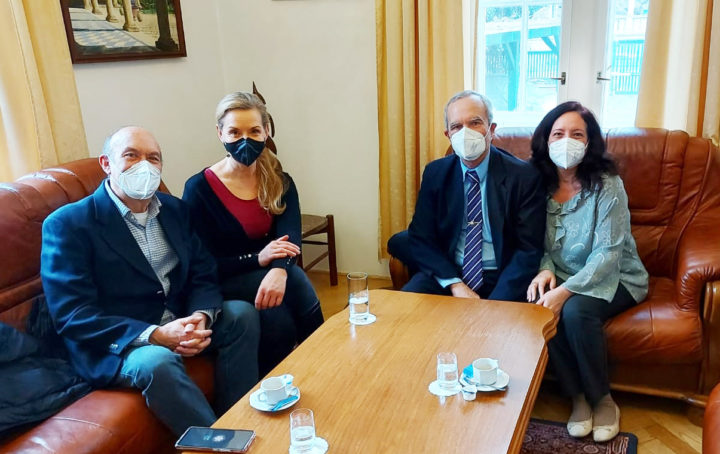A few days ago I met with Alonso Mederos, the Cuban Ambassador in Prague, for an interview on the topic of the pandemic and vaccines. Cuba is working intensively, testing five vaccines, two of which are already in phase III. Soberana 02 is expected to be ready in July, at which time vaccination of the entire population will begin.
The conversation then turned to other topics and inevitably the economic crisis was touched upon, a consequence of the pandemic that has paralyzed the tourism industry, but especially the harsh embargo that the United States applies against Cuba. His tone turned serious and sad. The sanctions affect banks, preventing economic transactions and the import and export of goods. While he was telling me in detail how the financial and economic blockade is suffocating the economic life of the island, rapid associations of images began to flow through my mind as if I were watching a movie: the Spanish colonization, then that of the United States, the revolution of the Ché and Fidel Castro, Guantánamo… and today the embargo that wants to erase an ideology, stifle a system with which they do not agree with, but which ends up affecting ordinary people in their daily lives. And what has this town of just over 10 million people done wrong to arouse the ire of the American colossus? What a moral little thing to use all your power to be cruel to people who have no possibility of defending themselves! And what moral greatness it implies to have health and education as a priority despite economic difficulties!
While so many “big” countries, with their privatized resources, are unable to produce a vaccine and must submit to the decisions of multinational pharmaceutical groups, “small” Cuba works incessantly in search of a vaccine to administer to its own population and offer it to other nations as well. “In our country, health is not only a right, but also a priority. Efforts and resources are not spared in disease prevention and treatment, ”Ambassador Alonso Mederos told me.
If the priority of a society is health, everything will revolve around this value and, consequently, coherent decisions will be made regarding the use of resources, as a family that prioritizes raising healthy children. In times of scarcity they do not let them die arguing that “there is no money,” but they systematically forego inappropriate spending. But if the priority is profit and the accumulation of wealth, people’s health is only important if it is possible to benefit from it. Thinking about this moral poverty, it was inevitable to see in Cuban society a great attempt, a great aspiration that originates in the depths of the human heart. And the notes of the song Guantanamera began to sound in my mind: “I know of a deep sorrow among the nameless sorrows: the slavery of men is the great sorrow of the world.”
Despite the “heavy” and “sensitive” topics such as the pandemic, the embargo and poverty, the meeting was positive and friendly. In particular, when speaking of Cuban aid to Italy when the pandemic broke out, the phrase caught my attention: “International solidarity is a principle that characterizes the Cuban people. For us, solidarity does not mean giving what we have left over, but sharing what we have.
We say goodbye to Mr. Alonso Mederos and his wife, with the deep feeling that an invisible thread unites human beings, with hope in our hearts. The hope of a people that, despite the vicissitudes, errors and abuses received, does not stop believing in the future. A people who, like David against the insolent Goliath, proudly follow his path.
As I left the embassy, I realized that I am ignorant, that I don’t really know anything. Just a few abstract ideas learned in college and four slogans broadcast on television, read on some social networks or heard from some friends. But the depth of reality, with its history made up of human aspirations, with attempts and failures, a reality that manifests itself in a thousand aspects, like a diamond with a thousand faces, completely escapes me.
Thinking back to the conversation with the Ambassador, I realize that even when he criticized the embargo for the great damage it causes, he was never resentful or angry. And so the notes and words of Guantanamera began to resonate in my mind: «I grow a white rose in June like January, for the sincere friend who gives me his frank hand. And for the cruel one who rips out the heart with which I live, I do not grow thistle or nettle; I cultivate the white rose ».
Translation by Lulith V, from the voluntary Pressenza translation team. We are looking for volunteers!






